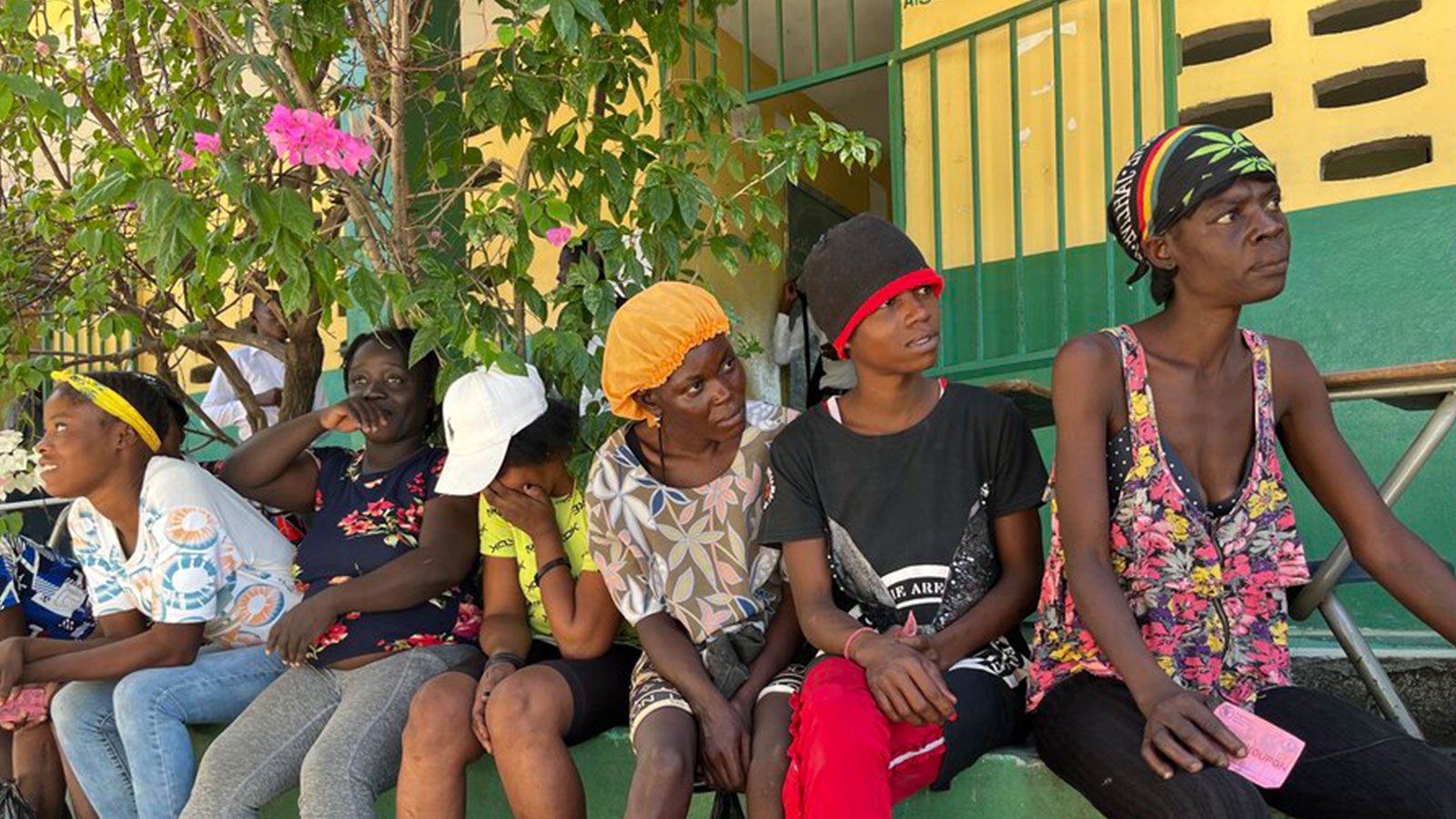World Food Programme calls for funds to maintain ‘stabilizing’ humanitarian assistance.
“Haiti’s hunger crisis is unseen, unheard, and unaddressed,” World Food Programme (WFP) Executive Director Cindy McCain, who visited the country in June, has said.
“Violence and climate shocks capture the headlines, but we don’t hear as much about the 4.9 million Haitians struggling to eat day-to-day,” she added.
“Per capita, the proportion of Haitians facing emergency-level food insecurity is the second highest in the world – we cannot abandon them.”
Jean-Martin Bauer, WFP Country Director for Haiti, couldn’t agree more. “Something is deeply wrong,” he says.
“You’ve got little kids in the hospitals of Gonaïves and Port-au-Prince who are malnourished and then you’ve got these mountains of food that we can’t move out of highly productive areas because of insecurity.”
Now urban gang violence and control are spilling into rural areas. Talking from Port-au-Prince, Bauer recalls a recent visit to the province of Artibonite, “an area of rich farmland” in the northeast that sells fruit to the rest of the country.
“I met people who can’t travel to the market for fear of being robbed, kidnapped and beaten,” he says. “We met a group of women who’d been kidnapped, having travelled to the market with food to sell.
“They’d had all their belongings, their money stolen from them, and had been held for days.” One of them had been raped. “There’s just all this trauma in these (food-producing) areas because of the pervasive insecurity. The very people who should be feeding this country, the farmers, the market women, are hiding at home.”
Bauer visited a mango farm. “One of the people there told me that two years ago, when things were relatively normal, they’d be able to sell a sack of mangoes for 500 gourdes. That’s around US$3.5 per bag.
“This year, they’re not even able to sell their mangoes at all, because people won’t risk sending their trucks on the roads to collect them as they get attacked, ransomed, or racketeered.”
In spite of day-to-day challenges, Bauer is keen for WFP to think about empowering people years, even decades, down the line. “This year, we’ve been able to double our locally grown school meals programme, working with grassroots organizations,” he says. “We need to make sure we don’t just focus on the here and now but try to build longer-term capacities.”
“If you look at the humanitarian needs of this country, food is a big component but it’s not everything – you need a multi-sector response,” he adds.
In recent months, vigilante groups have formed in the capital, with suspected gang members burned alive in the street.
“It’s anarchy. The social fabric in this country has been ripped to shreds. Neighbours don’t trust neighbours. There’s aggression, there’s violence, and people are doing whatever it takes to protect themselves,” says Bauer.
Despite living in the thick of it all, Bauer manages to be optimistic: “Humanitarian assistance is one of the few stabilizing factors in Haiti right now. At some point, this will get better – things will calm down. We need to make sure that these local grassroots organizations, the local NGOs we work with, are able to get going again and the investments that the country needs arrive.”
Adding to Haiti’s problems is extreme weather. Heavy rains on 3 June resulted in 51 deaths and the destruction of 34,000 homes, affecting the lives of 200,000 people – an inauspicious start to the Caribbean hurricane season which extends from 1 June to 30 November each year.
Bauer visited a community affected by the flooding in Rivière-de-Henne in the Nord-Ouest department.
“The people we met had lost all their belongings, they were drying out their mattresses in the sun – two children had died. They had lost their crops, their livestock. They told us this was worse than what they had during hurricane Matthew in 2016.”
Days later, on 6 June, a magnitude 4.9 earthquake struck the city of Jérémie and surrounding areas, killing four people and injuring 36.
There are currently 1.8 million people one step from IPC5 – ‘catastrophe’ on the global standard for measuring food insecurity – in Haiti. WFP reached 1.7 million in 2022. So far this year, it has reached nearly 1.4 million.
The organization desperately needs US$122.9 million in the next six months so that these people are, finally, seen and heard as WFP’s 317-strong workforce in Haiti delivers critical food and nutrition assistance.
Source: World Food Programme















